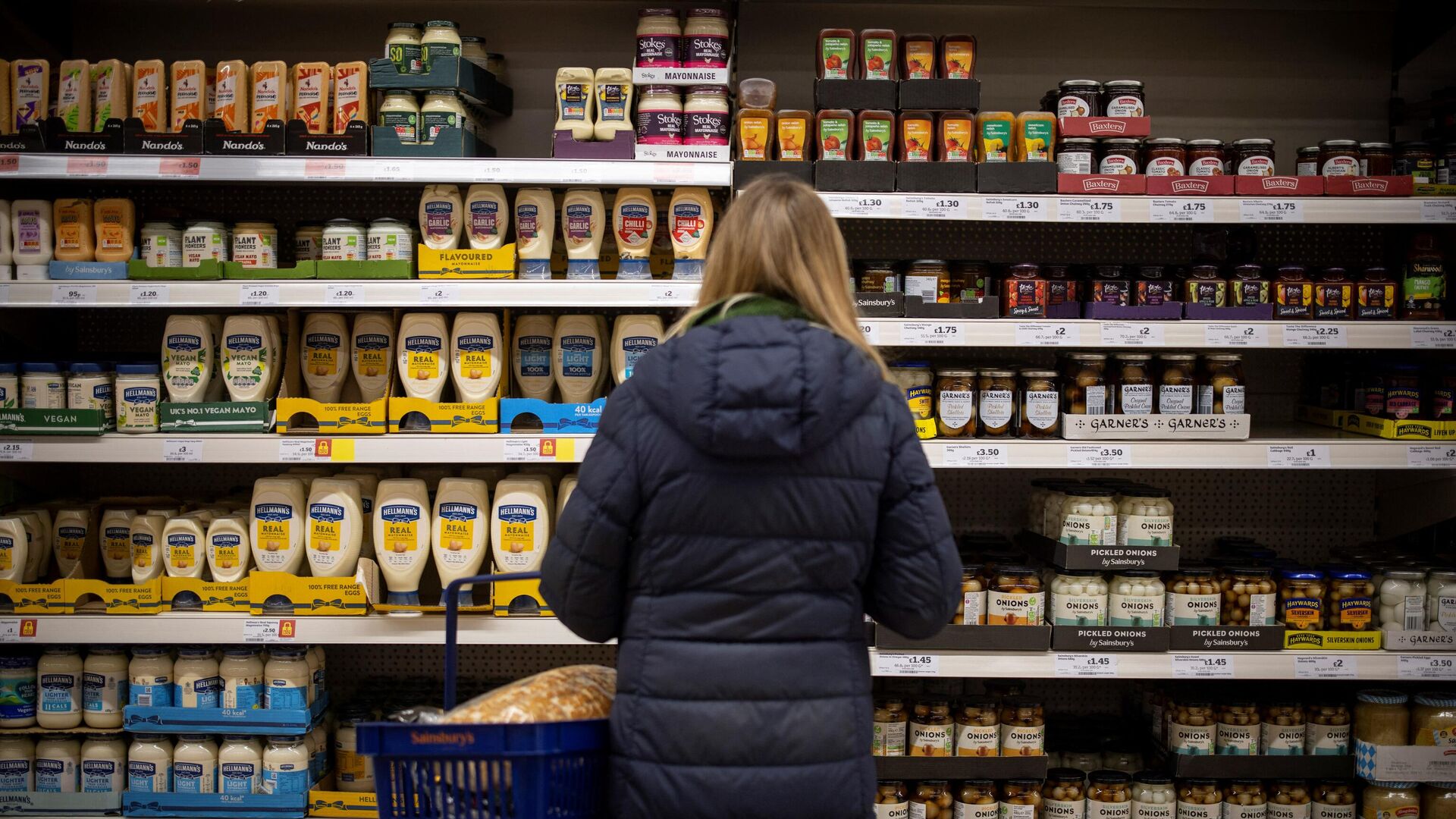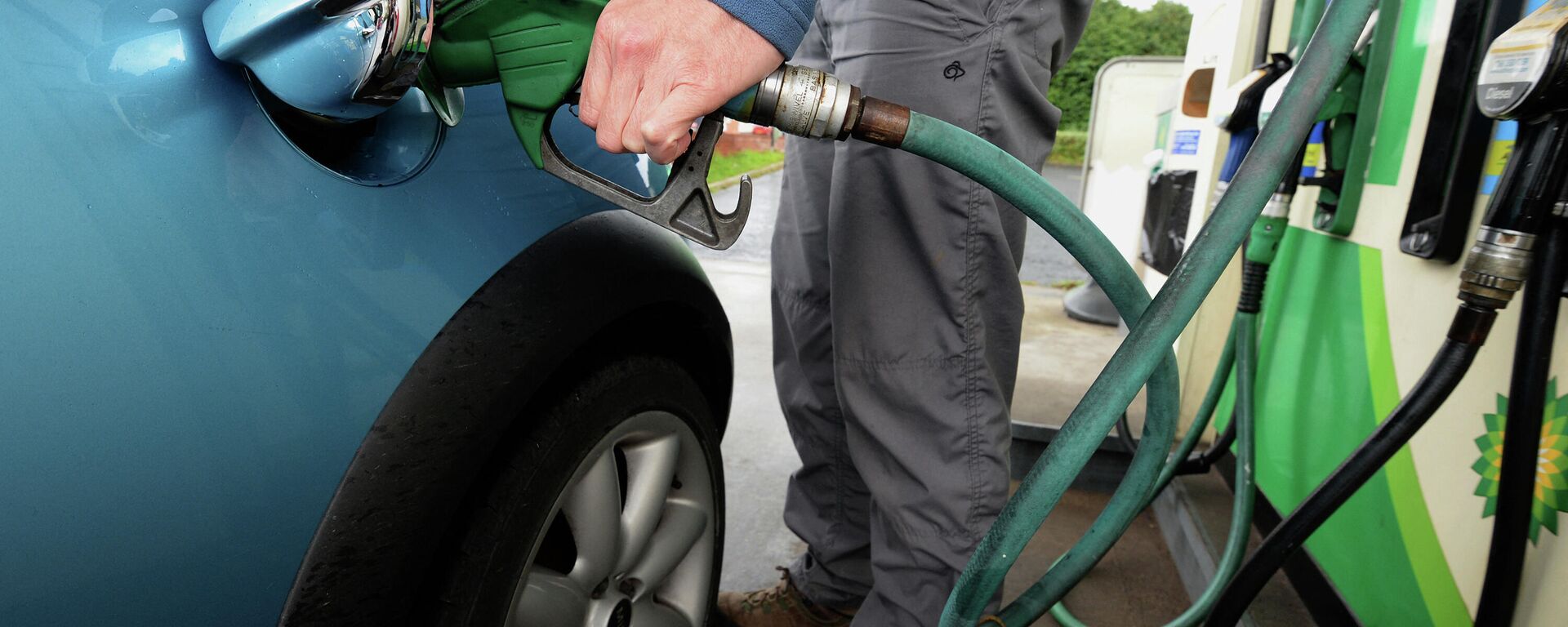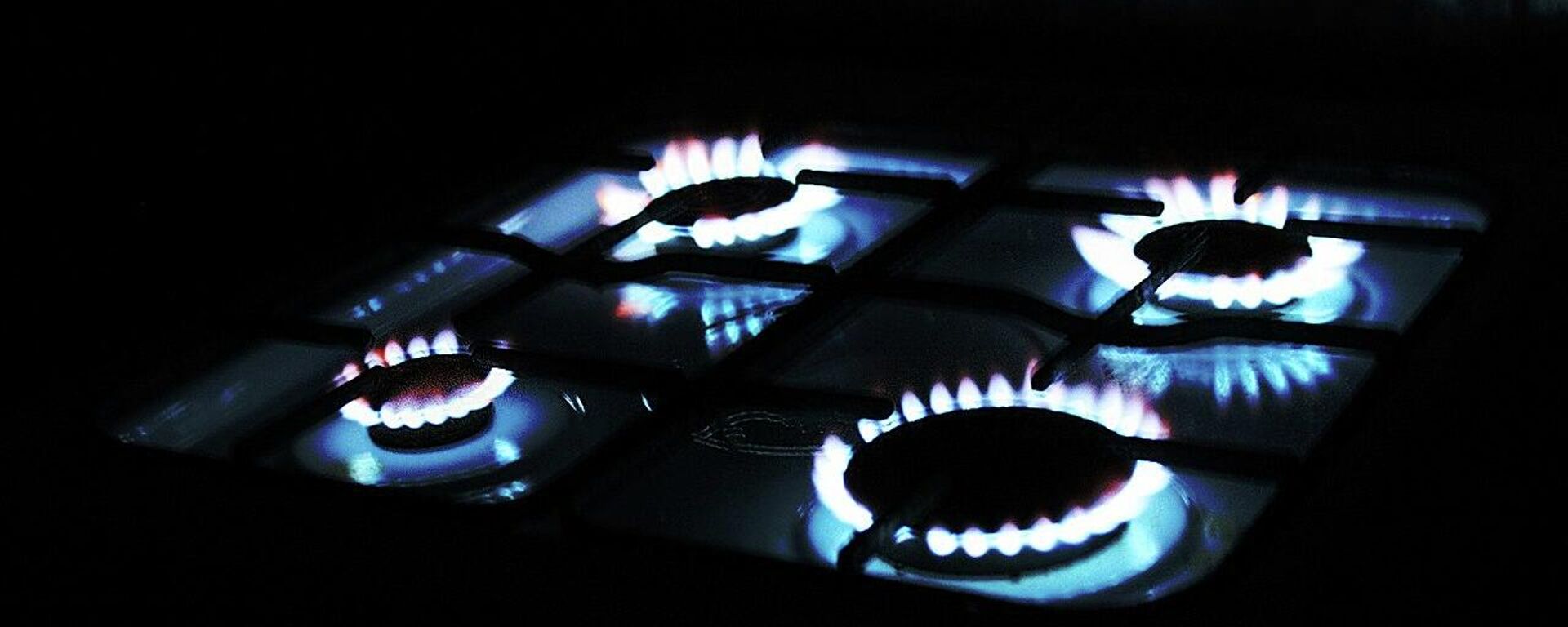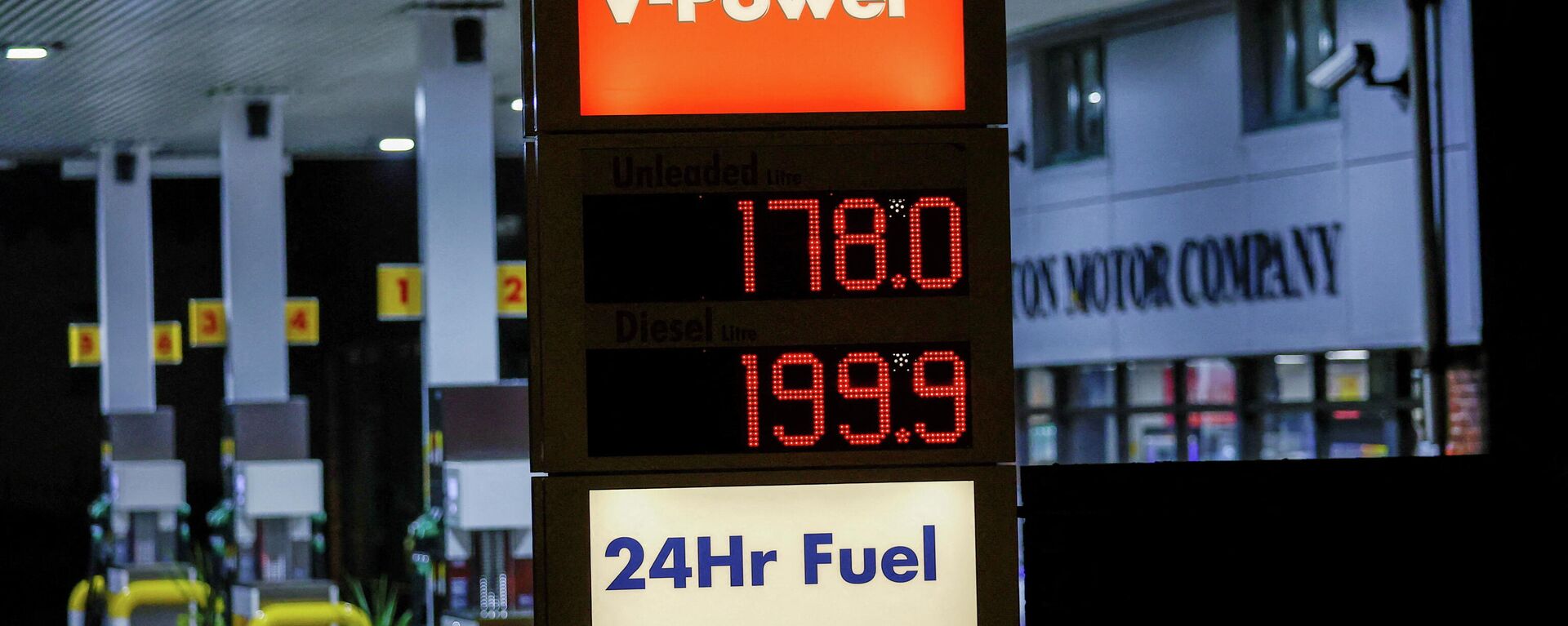UK’s Poorest Families ‘Most Exposed' to 'Biggest Cost of Living Crisis Faced in Generations’
05:43 GMT 14.03.2022 (Updated: 15:18 GMT 28.05.2023)

© AFP 2023 / TOLGA AKMEN
Subscribe
While the UK was already headed for a cost of living squeeze as energy prices skyrocketed in the past months due to a plethora of reasons, the impact of sanctions introduced against Russia over its special operation in Ukraine to demilitarise and de-Nazify the country sent petrol prices to record highs, boding ill for cost of food and inflation.
A new report has warned that amid the rising cost of living for British families, the country’s low and middle-income families will likely be hit the most by the soaring food and energy prices.
According to the economic outlook offered by an analysis from the Resolution Foundation, energy prices are also forecast to drive a fresh inflation spike of over 10 percent for the poorer households by the coming autumn.
Accordingly, the report, Catch 2022, has urged Chancellor Rishi Sunak to respond to the upcoming challenges in his Spring Statement set to be delivered on 23 March.
“The Chancellor is heading into the Spring Statement with good news on the public finances but terrible news on the family finances.”
‘Inflation Exacerbated by Conflict’
James Smith, research director at the Resolution Foundation, underscored in the fresh report that the UK chancellor had been approaching the Spring Statement, also known as the "mini-budget" - one of two statements HM Treasury makes annually to Parliament upon publication of economic forecasts – without undue pressure.
Indeed, amid forecasts of a revenue-rich recovery, the UK government had been buoyed by the fact that borrowing for the current financial year (2021-22) was set to be £30 billion lower than forecast last October. Tax revenues are expected to also be £40 billion higher than forecast, driven by factors such as switch from self-employment to employee jobs and sturdier wage growth.
However, “fast-rising inflation, exacerbated by the conflict in Ukraine, has changed all this.”
“The chances of a living standards recovery this year are receding as rapidly as inflation is rising, and the risk of another recession is looming into view. The Chancellor will therefore need to make some tough, and potentially expensive, choices in how to respond,” emphasized James Smith.
The UK had already been braced for a cost of living squeeze amid swelling energy prices in the past months due to a plethora of reasons, including a longer and colder than usual spring of 2020-2021 in Europe, depleted underground gas storage reserves across the region, increased oil and gas demand in Asia, a rapid recovery of some economies after COVID-19 lockdown, and a summer characterised by little wind to generate alternative power.
Against this backdrop, economists have been warning that the fallout from developments in Ukraine would impact food and energy prices to a degree that inflation could be in the double digits later this year.
Analysts of the Resolution Foundation have offered the bleak forecast that a typical UK family might see their disposable income fall by 4 percent over the coming tax year. For the poorest 10th of households this would be equal to losing an estimated £1,000 in cash due to having to spend twice the usual share of the family budget on food and energy bills.
In another bleak forecast made by the Resolution Foundation, the proportion of children living in absolute poverty is set to be higher in 2026-27 than it was at the start of the decade, adding this was “never seen before in modern Britain”.
Separately, the Trades Union Congress (TUC) has warned that energy bills were set to rise at least 14 times faster than wages in the country throughout this year. TUC’s analysis showed that gas and electricity bills were to increase by 54 percent after the price cap set by Ofgem changes in April, while average weekly wages are to rise by 3.75 percent.
Furthermore, taking into consideration likely weakened GDP growth and heightened probably of a recession, adds the report, it underscores:
“The chances of a living standards recovery this year are receding as rapidly as inflation is rising, and the risk of another recession is looming into view. The Chancellor will therefore need to make some tough, and potentially expensive, choices in how to respond.”
The report set out the imperative need to protect poorer households, “most exposed to the biggest cost of living crisis Britain has faced in generations.”
As to how this could be done, the analysts suggest increasing benefits by 8 percent in April, instead of the 3.1 percent currently planned.
“The Chancellor cannot protect Britain entirely from the difficult times that lie ahead, but he needs to act urgently to ensure the pain is fairly shared,” stated the report.
This comes as Rishi Sunak is reportedly planning to unveil additional help to fund the surging cost of living for UK households, according to Secretary of State for Levelling Up, Housing and Communities Michael Gove.
“What we have to do at the moment is to provide support in every way possible that is targeted. We have cut taxes by cutting council tax for people who are on the lower bands, we’re doing that deliberately in order to target support at those on lower incomes at a time when we know that they face considerable pressures,” said Gove, appearing on BBC One’s Sunday Morning.
Gove added that the government was forced to proceed with the planned rise in national insurance to cover the cost of social care and to clear the NHS backlog that resulted from the COVID-19 pandemic.
Earlier, Sunak already announced a £200 discount on fuel bills in October, set to be funded by repayable government loans to householders. The raising of the energy price cap had also prompted the Chancellor earlier to unveil a £150 council tax rebate for homes in council tax bands A to D (council tax band is determined based on the value of your property at a specific point in time).
Food, Petrol Prices Soar
Western sanctions on Russia over its special operation in Ukraine to demilitarise and de-Nazify the country have hit hard against consumers in the UK, as petrol pump prices have approached £2 per litre.
Unleaded petrol was at £1.61 a litre on Thursday, having risen by 8p in a week. Diesel reached £1.70 a litre, amid near all-time highs of wholesale oil prices.
US President Joe Biden had announced a ban on Russian energy imports, including oil and gas earlier, as as part of America's new "severe" sanctions. After Washington’s move, the UK followed suit last week, with Business Secretary Kwasi Kwarteng laying out a plan to phase out Russian oil and gas, hoping the UK public were prepared to “endure hardships in solidarity with the heroic efforts that the people of Ukraine are making”.
Let's stay in touch no matter what! Follow our Telegram channels to get all the latest news:
Sputnik News US - https://t.me/sputniknewsus
Sputnik News India - https://t.me/sputniknewsindia



